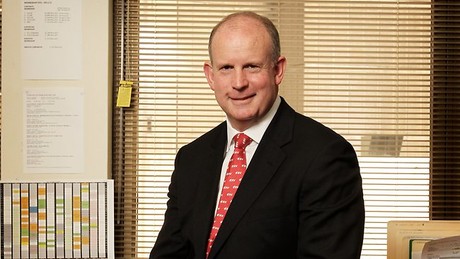Australasian association advises that fewer analysts will hamper how companies distribute relevant information
Significant cuts in the number of sell-side analysts covering Australia’s largest companies could have contributed to the recent controversy surrounding selective briefings, according to the country’s investor relations trade body.
Ian Matheson, CEO of the Australasian Investor Relations Association (AIRA), has warned that Australia’s dwindling pool of analysts are finding it increasingly difficult to keep up with a rising demand for their services.
At a time when many developed markets have weathered a significant downturn, he says, companies have had to make ‘a number of considerable cutbacks in the investment banks, including on the research side.
‘Cuts to analyst teams, including some old hands being made redundant, means many analysts’ coverage is much [wider]. As a result, analysts find they have a lot less time available, making mistakes that bit more likely. When companies disclose information publically, therefore, analysts may not necessarily pick up on everything they say, or may be slow to update their models.’

Ian Matheson, CEO of AIRA, has raised concerns over both a lack of sell-side analysts and increased interference from the industry regulator
Matheson’s warnings come after the Australian Securities and Investments Commission (ASIC) announced plans to sit in on briefings between companies and stockbrokers in an effort to boost confidence in the country’s continuous disclosure structure.
A series of spot-checks examining official briefings between companies listed on Australia’sstock exchange and their analysts will be introduced with the intention of avoiding situations similar to that involving Newcrest Mining last month.
Newcrest, which remains Australia’s largest gold producer, saw its shares fall 12 percent in the two days before it announced A$6 bn ($5.46 bn) worth of writedowns, alongside plans to reduce costs and shelve planned expansions and explorations.
The incident raised concerns that a number of the company’s analysts were selectively briefed ahead of the changes, prompting a full-scale ASIC investigation. Newcrest has since denied that it selectively disseminated information.
Matheson imagines the new checks will be useful ‘if they help the regulator secure the market and the role of meetings’ in parallel incidents.
‘We would be very concerned, however, if ASIC came out and banned one-on-one meetings or constrained how they operated,’ he continues. ‘It would be detrimental to companies’ need to assist analysts to model the company properly and stifle the Australian capital market, thereby putting us at a disadvantage.’
ASIC commissioner Cathie Armour has asserted that such an exercise ‘is designed to proactively look at the approach the companies and analysts are taking… whether it is inadvertent or deliberate.’
The corporate regulator will focus on company interactions with analysts by both listening in on company briefings and sitting in on face-to-face meetings between firms and their individual analysts.
Armour concludes that the introduction of such checks come at ‘an opportune time to remind the market about integrity on communications between companies, investors and analysts.’
Ending on a note of caution, however, Matheson adds: ‘The law is already there and works well. ASIC should therefore enforce the existing law and not make necessary clarifications of existing disclosures unworkable.’










